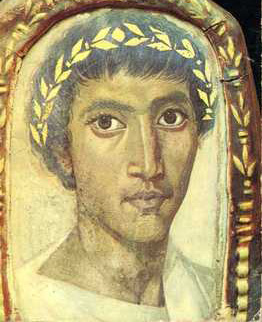Cenabis bene, mi Fabulle, apud me (Latin)
Cenabis bene, mi Fabulle, apud me
Paucis, si tibi di fauent, diebus,
Si tecum attuleris bonam atque magnam
Cenam, non sine candida puella
Et uino et sale et omnibus cachinnis.
Haec si, inquam, attuleris, uenuste noster,
Cenabis bene; nam tui Catulli
Plenus sacculus est aranearum.
Sed contra accipies meros amores
Seu quid suauius elegantiusue est:
Nam unguentum dabo, quod meae puellae
Donarunt Veneres Cupidinesque,
Quod tu cum olfacies, deos rogabis
Totum ut te faciant, Fabulle, nasum. | Uploaded by | Angyal Leó |
| Source of the quotation | http://en.wikisource.org/wiki/Catullus_13?match=la |
|
A vacsora – Fabullhoz (Hungarian)
Nálam jó vacsorád leénd, Fabullom,
Egy-két napra, ha megsegít az isten.
Ha gazdag vacsorát hozol magaddal,
És fog jönni veled fejér leányka,
Jó bor, tréfa, egész sereg kacajjal.
Ezt, mondom, ha hozol, Fabull barátom,
Lesz itt jó vacsorád; mivel Catullod
Erszényét merevül beszőtte a pók.
Ellenben veszel itt csupán szerelmet,
S édesebb, gyönyörűbb ha még van ennél:
Mert lyánykám kenetét adom tenéked,
Ezt adták neki Vénus és Cupidók;
Mellyet hogyha szagolsz, az égre így nyögsz:
Hogy téged merevül teremtsen orrnak. | Uploaded by | P. T. |
| Source of the quotation | http://www.konyvjovo.hu/olvasnivalo |
|




